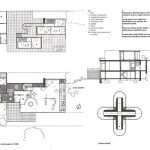Essential Considerations for Getting Planning Permission to Construct a House
Building a house is a significant undertaking, and obtaining planning permission is a crucial step in the process. Understanding the key aspects of planning permission can help you navigate the process efficiently and avoid potential setbacks.
1. Local Planning Authority and Policies
The local planning authority (LPA) is the organization responsible for granting planning permission in your area. They have specific policies and guidelines that outline the criteria for development. It is essential to familiarize yourself with these policies to determine if your proposed project aligns with local requirements.
2. Site Selection and Feasibility
Choosing an appropriate site is crucial. Consider factors such as zoning restrictions, site topography, access to utilities, and potential environmental impacts. Conducting a feasibility study can help assess the suitability of the site and minimize potential obstacles.
3. Pre-Application Advice
Before submitting a formal planning application, consider seeking pre-application advice from the LPA. This involves discussing your plans with planning officers and obtaining their feedback. It can help you refine your design, identify potential issues, and increase the chances of approval.
4. Application Documents
The planning application consists of a detailed set of documents, including plans, elevations, sections, and a written statement. These documents should clearly outline your proposal, demonstrate its compliance with planning policies, and address any potential concerns.
5. Public Consultation
Once the application is submitted, the LPA will typically consult the public and neighboring property owners. This process provides an opportunity for others to express their views on the proposed development. It is advisable to consider these comments and address any objections or concerns raised.
6. Planning Committee
In some cases, the planning application will be determined by a planning committee. This group of elected representatives or appointed officials will review the application and make a decision based on the submitted documents, public comments, and relevant planning policies.
7. Conditions and Approvals
If the planning application is approved, it may be subject to certain conditions. These conditions aim to mitigate potential impacts or ensure the development aligns with specific requirements. It is essential to carefully review and comply with all conditions.
Conclusion
Obtaining planning permission for building a house involves adhering to the requirements set by the local planning authority. By understanding the process, conducting thorough planning, and engaging with stakeholders, you can increase the likelihood of a successful application and minimize the risk of delays or setbacks.

How To Get Planning Permission For A New Build House 2024 Edition Urbanist Architecture Small Company London

Steps Involved In Getting Planning Permission Thermohouse

Planning Permission South West Log Cabins

Self Build Design How To Get Planning Permission

Do You Need Planning Permission For An Extension 2024

What To Do Get Planning Permission Build A House

Grand Designs How To Use Planning Permission Boost Your Home S Value Piccolo Property Salisbury Wiltshire

Backland Development Planning Permission For Building In Your Garden Urbanist Architecture Small Company London

Does It Really Matter Whether You Get Planning Permission For Your Extension Newport Land And Law

What Can Be Built Without Planning Permission I House








